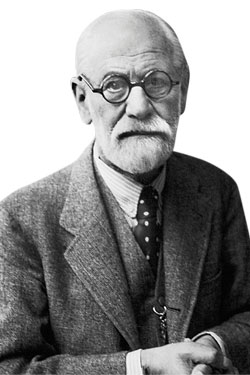
Two Jews may, as the saying goes, have three opinions, but that appears to be a fairly modest ratio when compared with psychiatrists. It was inevitable that revisions to the Diagnostic and Statistical Manual of Mental Disorders would invite controversy—it’s the classic reference work for mental-health professionals, and a convenient field guide to understanding crazy exes for the rest of us—but even the American Psychiatric Association, which first appointed the work groups to update the text two years ago, couldn’t have predicted the squabbles now under way. Dr. Allen Frances, the man who chaired the task force that created the current edition (the DSM-IV), has today emerged as the most trenchant, and relentless, critic of the proposed revisions to the upcoming edition (the DSM-5; among the changes is a transition to Arabic numerals). Last Tuesday was the final day those revisions were open to public comment. “And hopefully,” Frances says, “most of them will drop out.”
Basically, Frances believes that the first draft of the DSM-5 is too promiscuous with its labels, both by loosening diagnostic criteria and by introducing a host of new and, to his mind, problematic maladies—like Binge Eating Disorder (more or less defined as gorging on massive amounts at least once a week for three months). By the estimate of one DSM-5 task-force member, Frances says, this disorder already afflicts 6 percent of the population. “And that,” he notes, “is before drug companies start marketing something for it.”
As Frances pointed out in a recent Los Angeles Times editorial, such taxonomic adjustments only seem to further shrink “the ever-shrinking domain of the normal.” Take another DSM-5 proposed addition: Temper Dysregulation Disorder With Dysphoria. Frances fears this may be deployed for kids who have typical temper problems. Or Major Depressive Episode: As it’s redefined, it could now be used to describe someone who’s spent two weeks grieving over a lost spouse, he contends. But the worst offender, in Frances’s view, is Psychosis Risk Syndrome, which attempts to identify and treat youngsters before they become psychotic. In his view, there isn’t any evidence that early intervention with medication helps, while there’s plenty to suggest that many teens could be misidentified. “And that I saw as a public-health danger,” he says, “because there are real drawbacks to being on antipsychotics.” Like weight gain and diabetes. “Those children are also disproportionately on Medicaid,” he adds.
One can, of course, sympathize with David Kupfer, the chairman of the DSM-5 task force (who said, via an assistant, he couldn’t speak before our deadline). The field has evolved since 1994, when the DSM-IV was first published, as have clinical practices. “Clinicians complain that the current DSM-IV system poorly reflects the clinical realities of their patients,” he and his colleagues wrote last summer in Psychiatric Times. “Researchers are skeptical that the existing DSM categories represent a valid basis for scientific investigations, and accumulating evidence supports this skepticism.” And the current version of the DSM-5 is only a draft, after all (it won’t be out until May 2013). Even Frances is compassionate about his plight. “If you’re an expert in the field,” he says, “you really resent it when you can’t find a specific diagnosis for every patient. But you have to avoid the temptation to make changes that’d have disastrous unintended consequences.”
Have good intel? Send tips to intel@nymag.com.